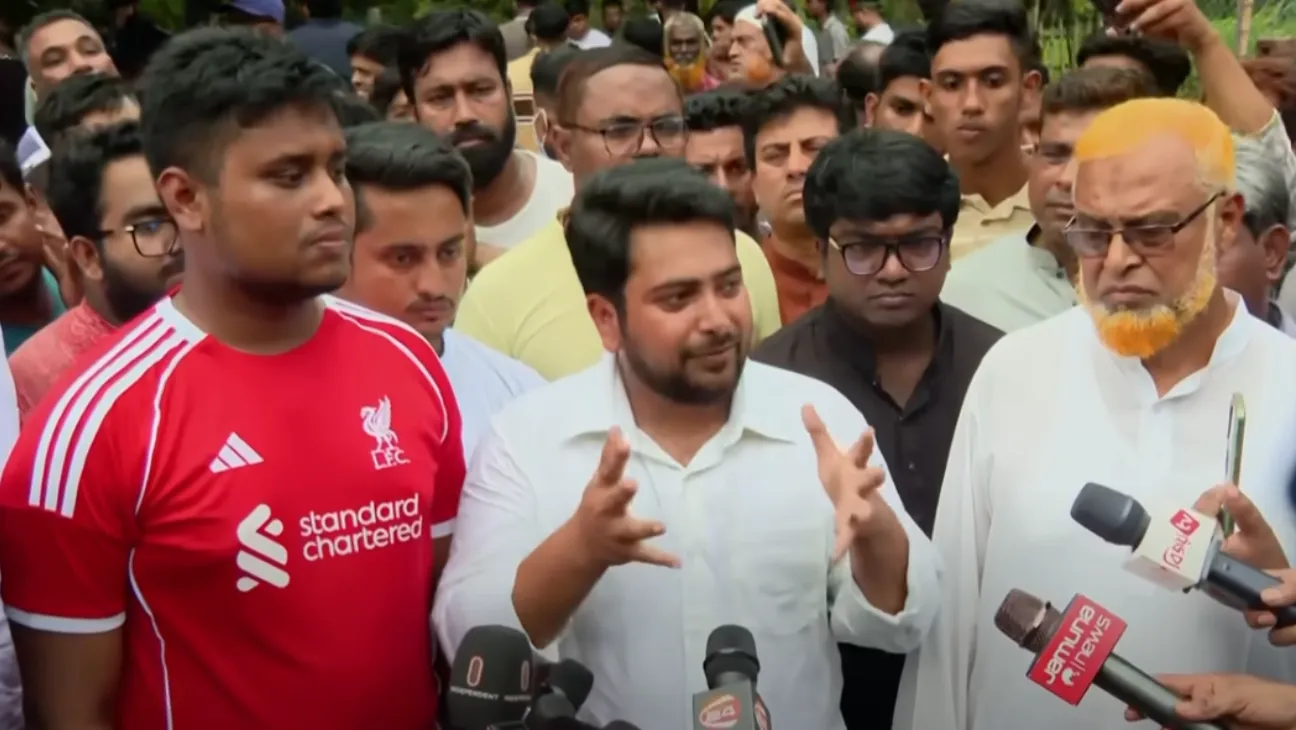The National Citizens Party (NCP) reached Kushtia on Monday as part of its ongoing July March, where party leaders paid tribute at the grave of Abrar Fahad, the Bangladesh University of Engineering and Technology (BUET) student who was killed in 2019.
NCP Convener Nahid Islam linked the campaign to what he called a broader fight against external dominance and domestic repression.
“Abrar Fahad showed the path of being pro-Bangladesh and against Indian aggression. Our movement follows that path,” Nahid said at the gravesite.
Remembering Abrar Fahad
Abrar was killed on October 6, 2019, after making a critical post on Facebook about a water deal with India. He was attacked in his BUET dorm, and the blame was placed on members of the Chhatra League—the ruling party’s student organization.
Nahid referred to the killing as politically motivated.
“He was tortured and killed for standing up for the country. Speaking for the people has become a crime,” he added.
The NCP leader characterized the Chhatra League as an “Indian-subservient terrorist organization,” accusing it of silencing dissent with violence.
A March Framed by Memory and Protest
This year’s July March began on 1 July and will continue through the end of the month. It includes rallies and visits across the country, all under the banner of demanding justice, democratic reforms, and a new constitution.
The visit to Abrar’s grave was symbolic. Nahid described it as a reflection of the party’s core values and its stand against what he called fascism and foreign influence.
“Our politics stands on the spirit of those who have faced murder, disappearances, and torture over the past 16 years. This fight is about building an independent, sovereign, and dignified Bangladesh,” he said.
Legacy of a Movement
Recalling the 2019 protests after Abrar’s death, Nahid said the rise of the anti-Delhi hegemony movement marked a shift in public dissent.
The NCP has tried to harness that momentum with its ongoing campaign, which mixes remembrance with calls for change.
Whether the July March will shift political dynamics remains uncertain. But for the NCP, its symbolism is clear: a walk across Bangladesh in the name of those they believe spoke out, and paid the price.









